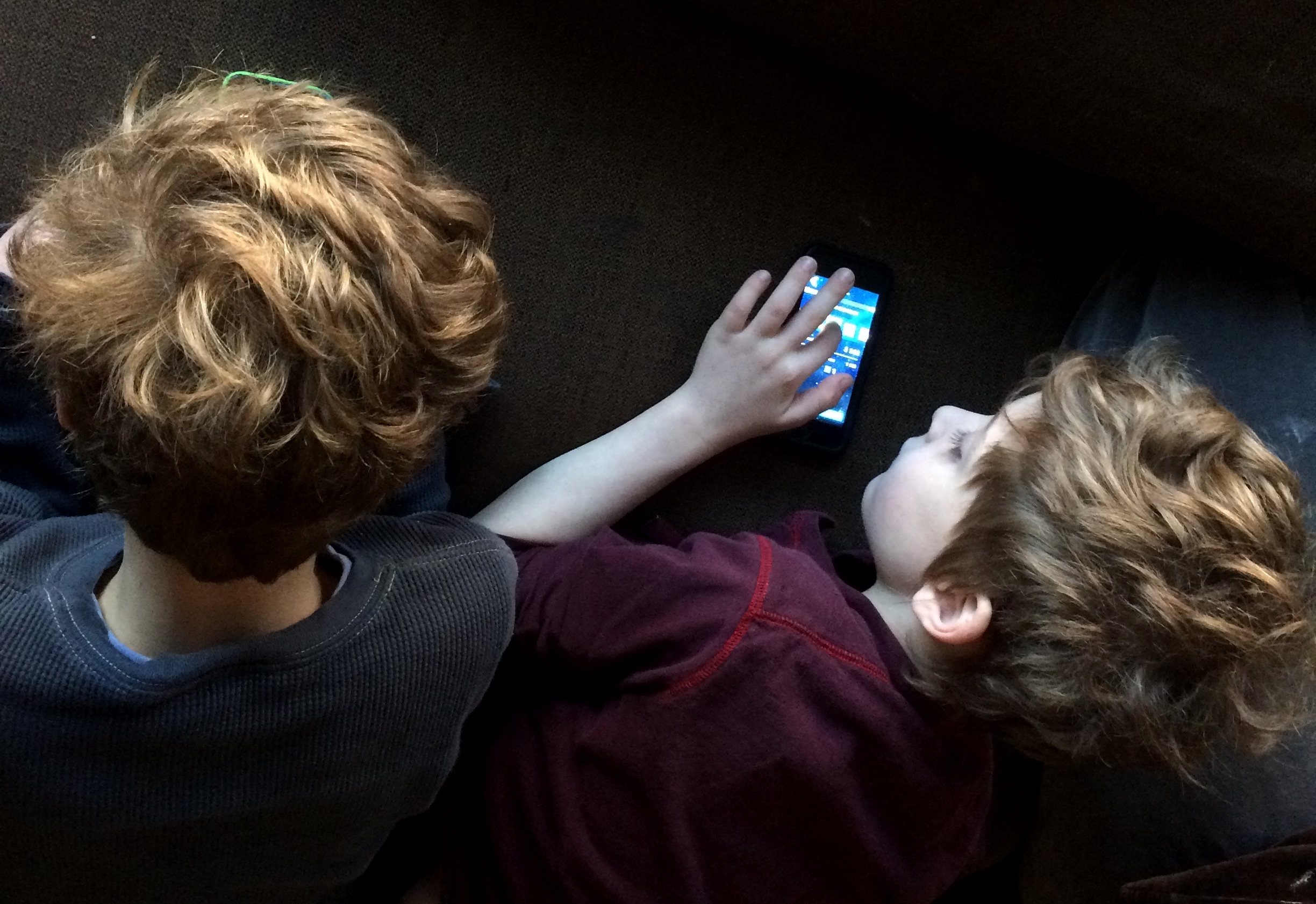 I don’t generally believe in New Year’s resolutions, but this year I have two.
I don’t generally believe in New Year’s resolutions, but this year I have two.
1: Be more patient with M
C’s non-autistic twin, M, is what you’d call a Big Personality Kid—he can take over a room with his presence. And yet, through all the tumult of our lives, all the health and developmental issues, I’ve expected this little boy to toe the line, to make life easy—to avoid adding to the chaos. That’s unfair to any kid, let alone one who’s gone through as much as he has.
2: Take care of my health
I haven’t had a physical in four years. I haven’t had a real feet-up vacation in about a decade. That’s nonsense. It’s not good for me, and it’s not good for my family. First, I’m going to make an appointment with my GP. Second, I’m making a three-year plan: there will be a Real Vacation by 2019 come hell or high water. Or both.
So, what are your resolutions?

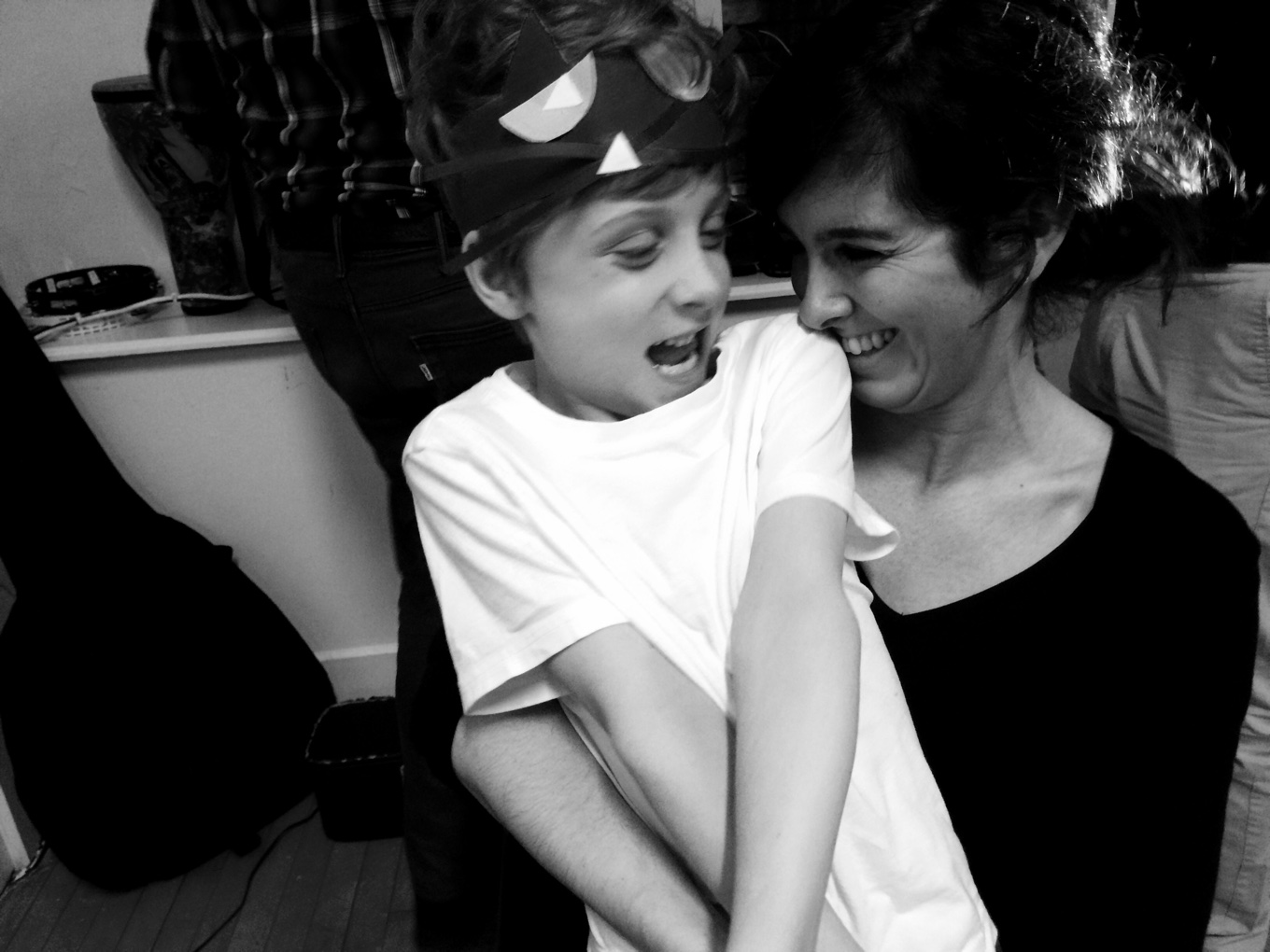 Two years ago, my son's previous school held a holiday concert. C had to be supported on stage by a teacher's assistant because he was so overwhelmed. The concert was loud and chaotic, all the more surprising since his school served children who often have major sensory issues. But his reticence to be part of the event went deeper than that: he was struggling.
Two years ago, my son's previous school held a holiday concert. C had to be supported on stage by a teacher's assistant because he was so overwhelmed. The concert was loud and chaotic, all the more surprising since his school served children who often have major sensory issues. But his reticence to be part of the event went deeper than that: he was struggling.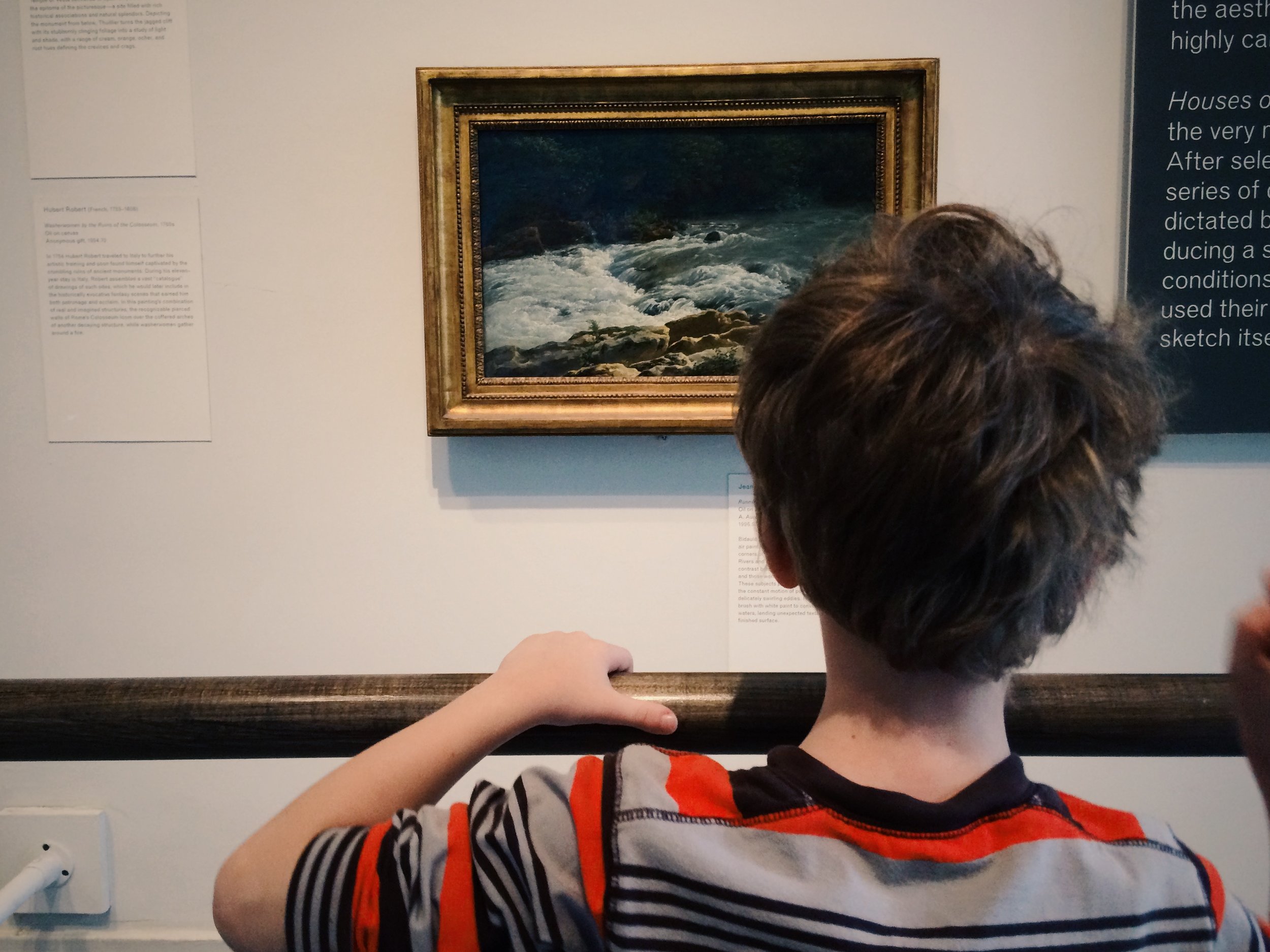 C recently asked to go to the museum "to see the pretty pictures." Mind blown. So off we went.
C recently asked to go to the museum "to see the pretty pictures." Mind blown. So off we went.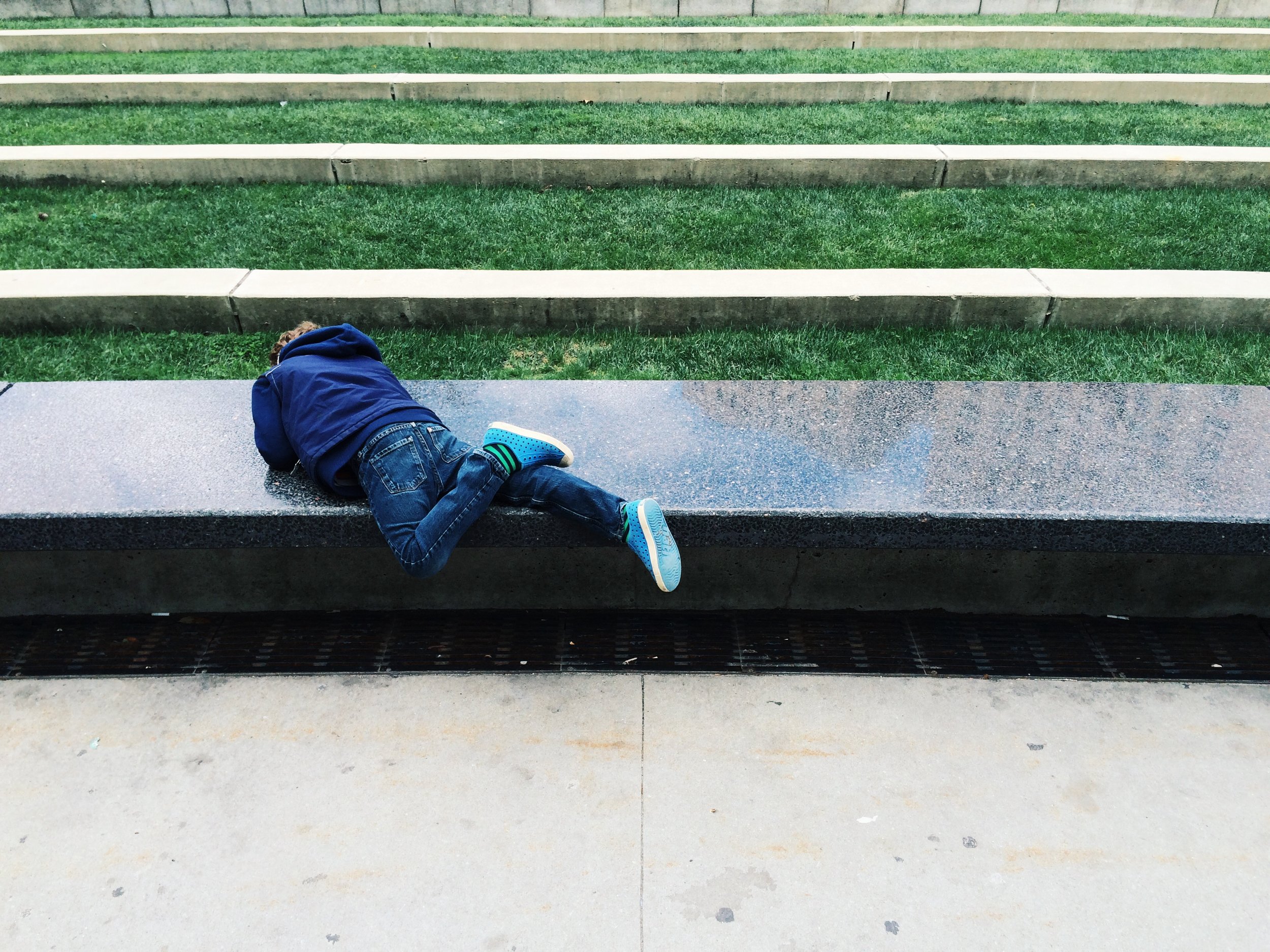
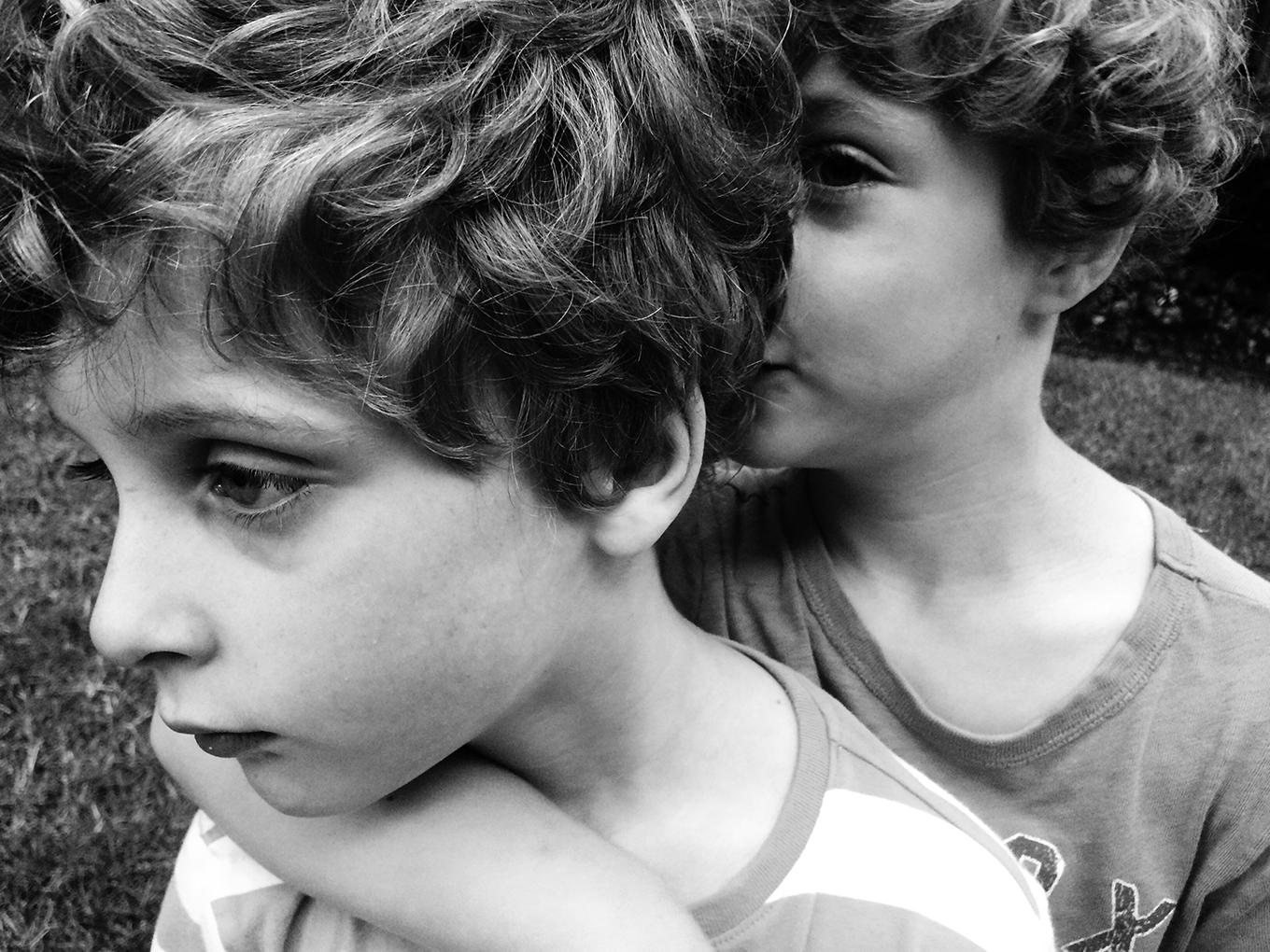 Parents occasionally write to tell me their child was just diagnosed with autism, and in searching the Web for insights they found my blog. They often express fear and sometimes sorrow, and ask if I have any advice.
Parents occasionally write to tell me their child was just diagnosed with autism, and in searching the Web for insights they found my blog. They often express fear and sometimes sorrow, and ask if I have any advice.